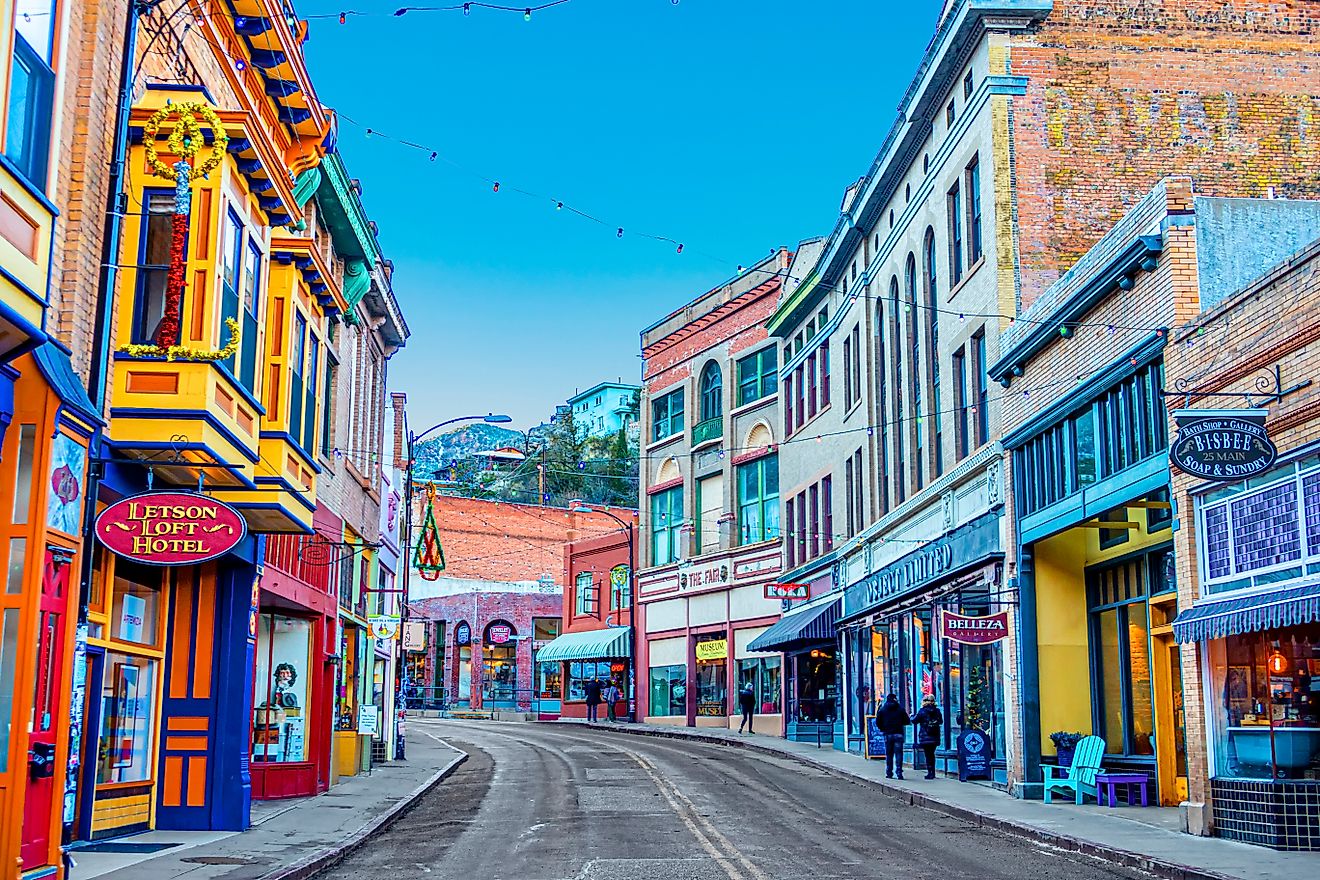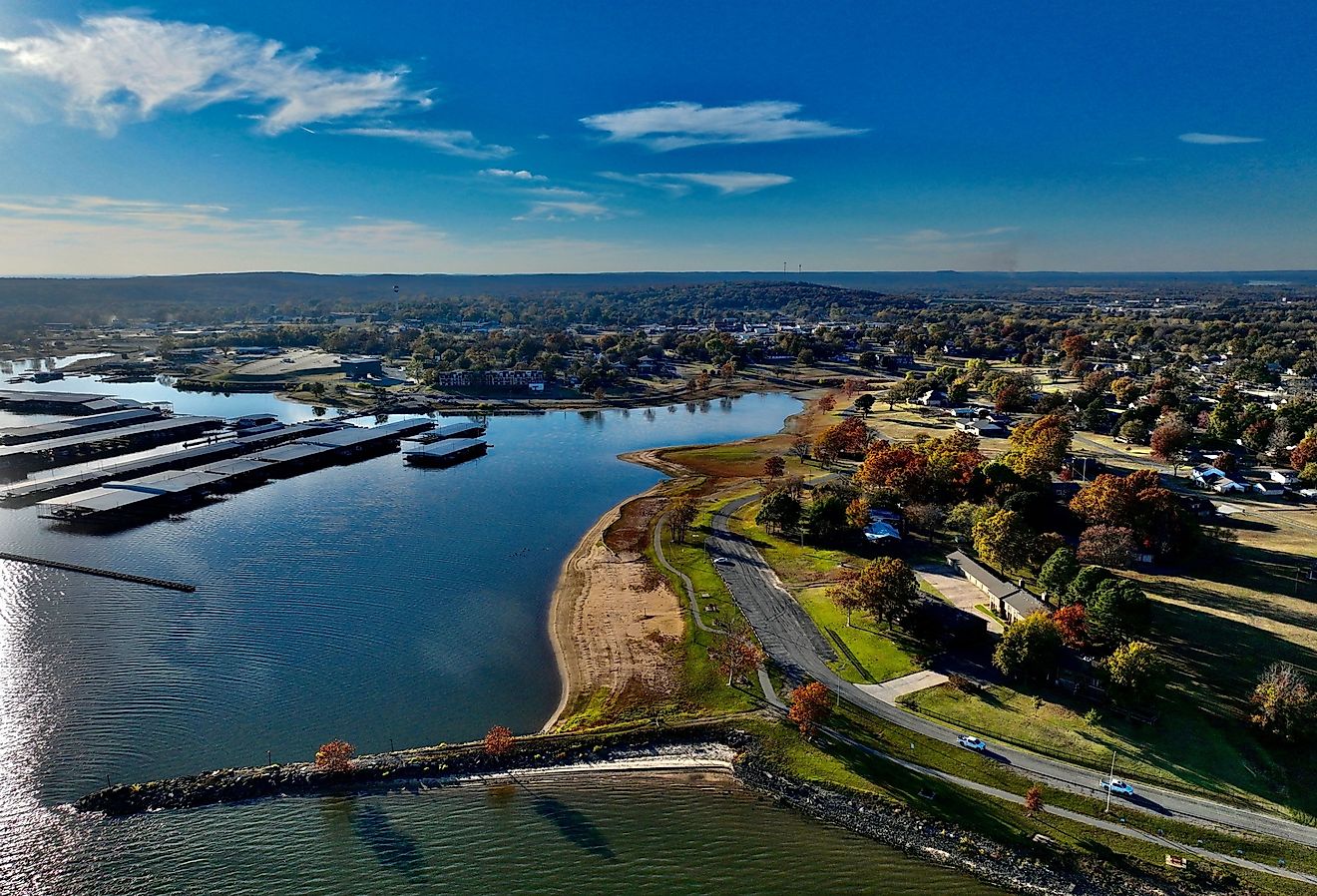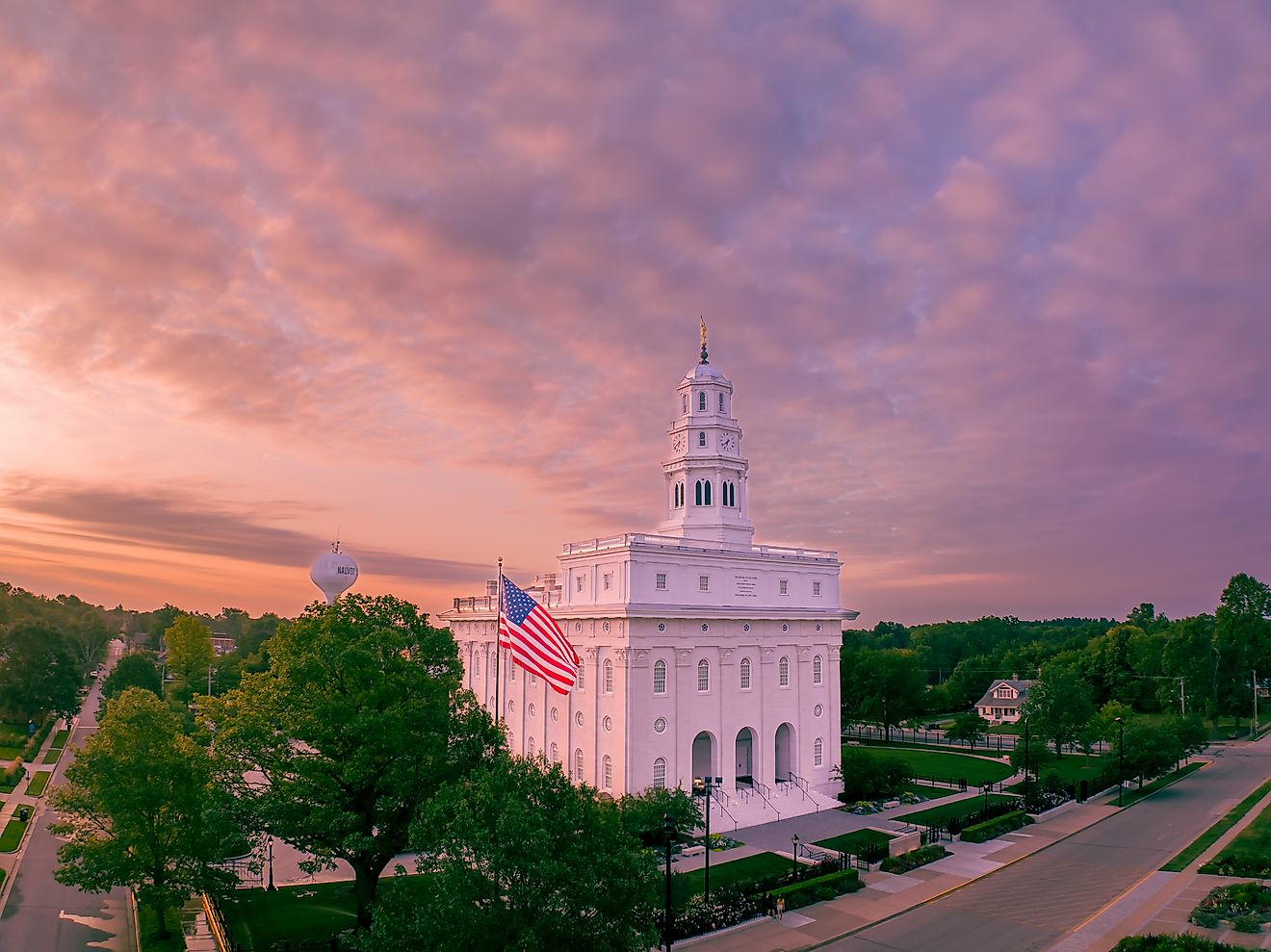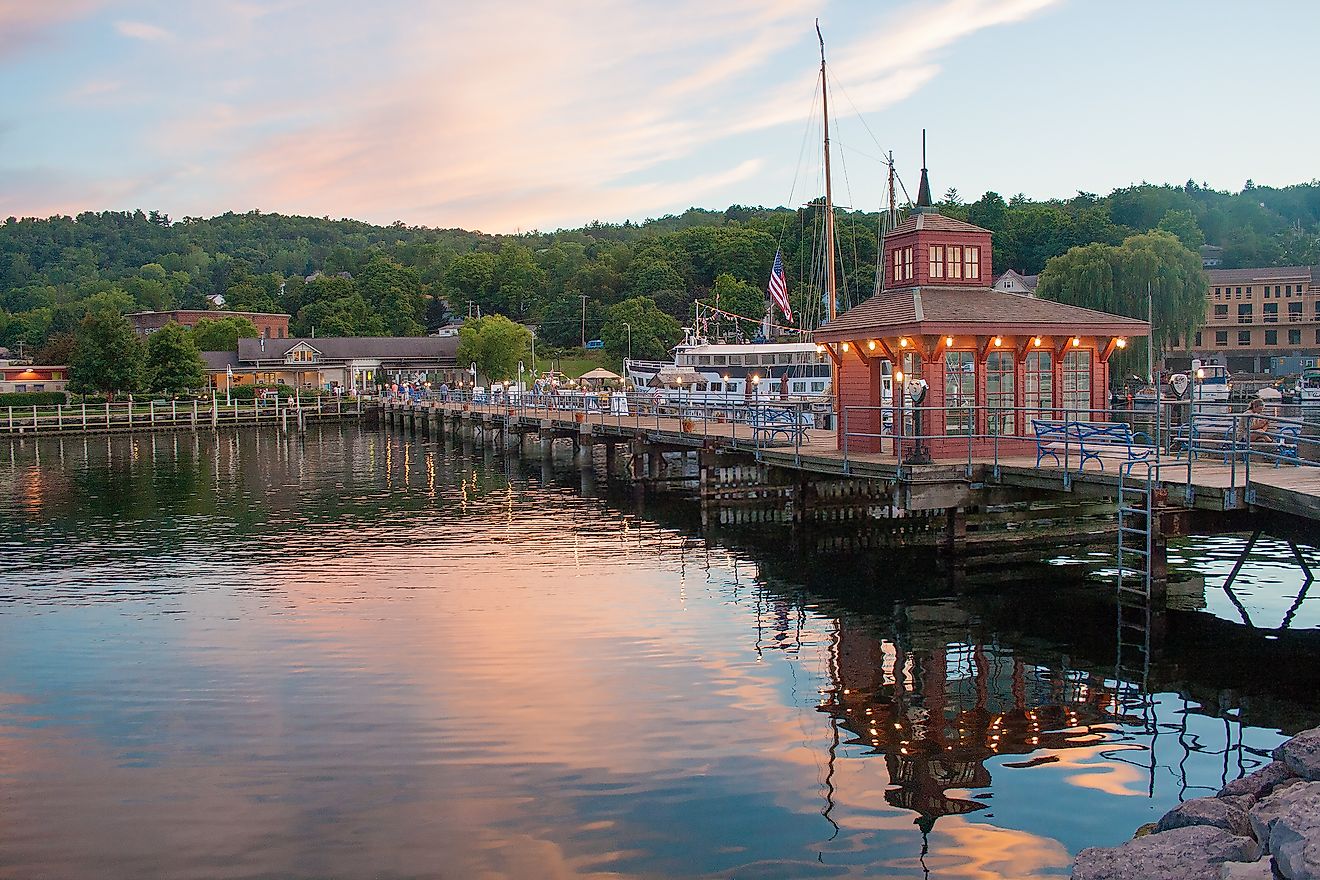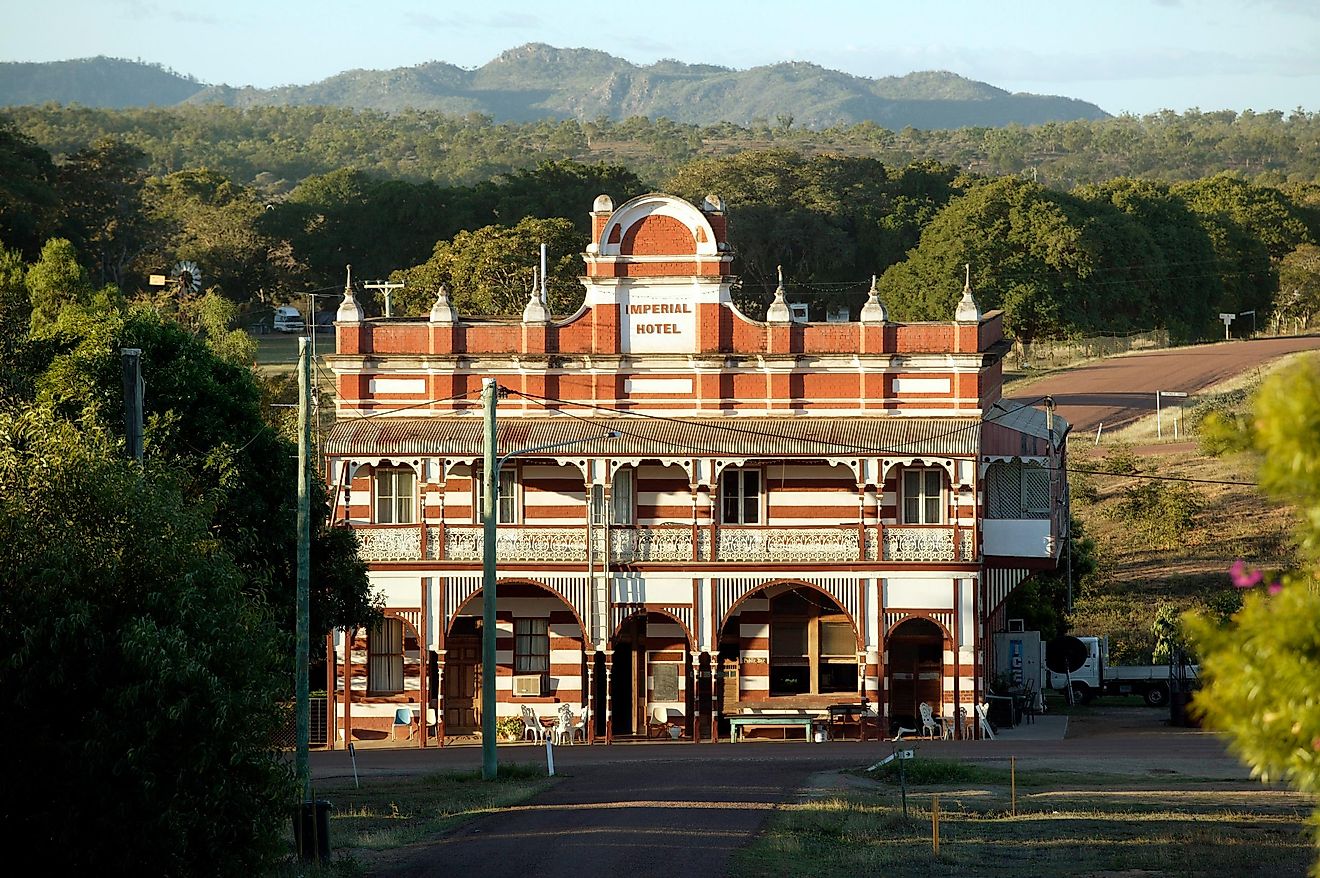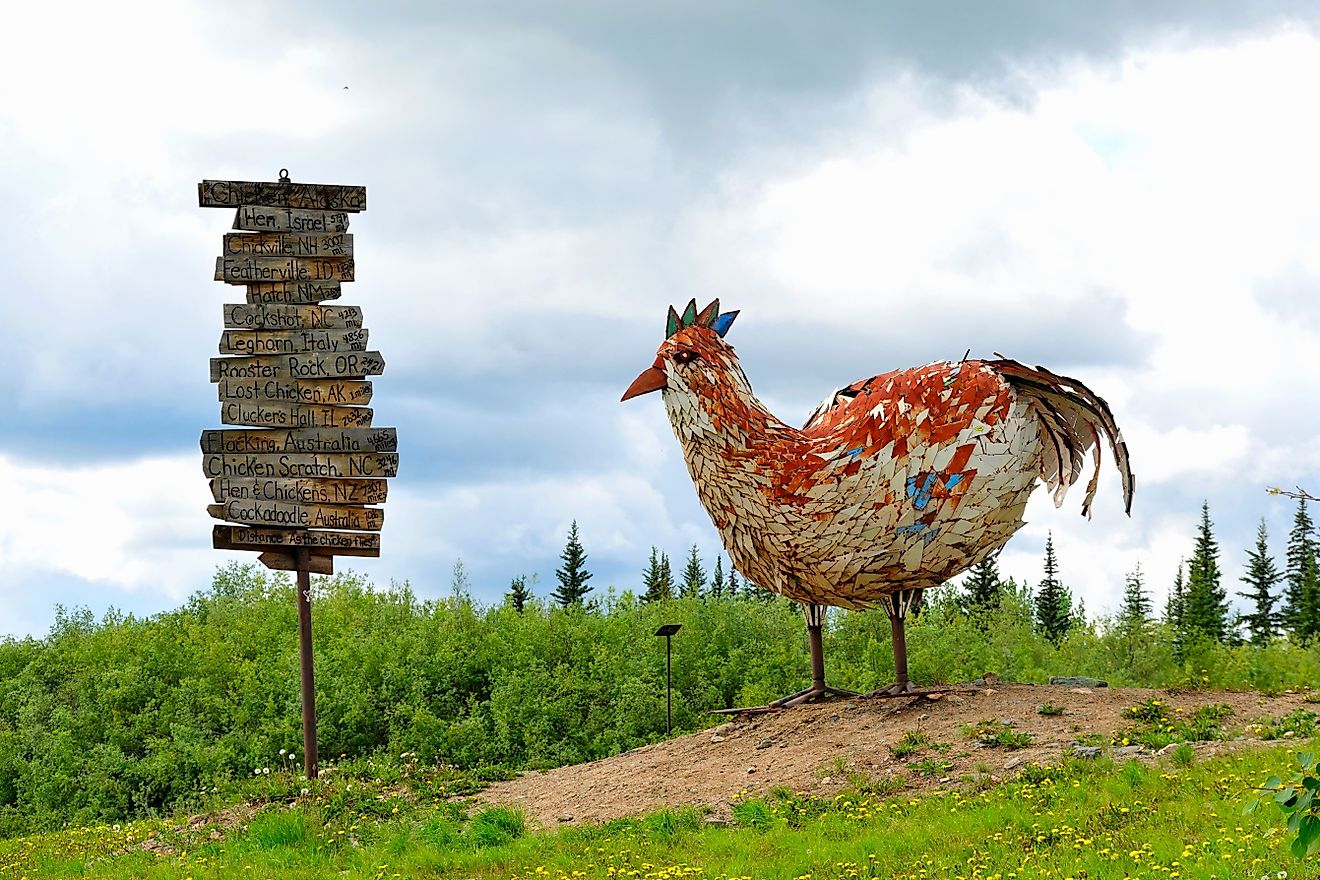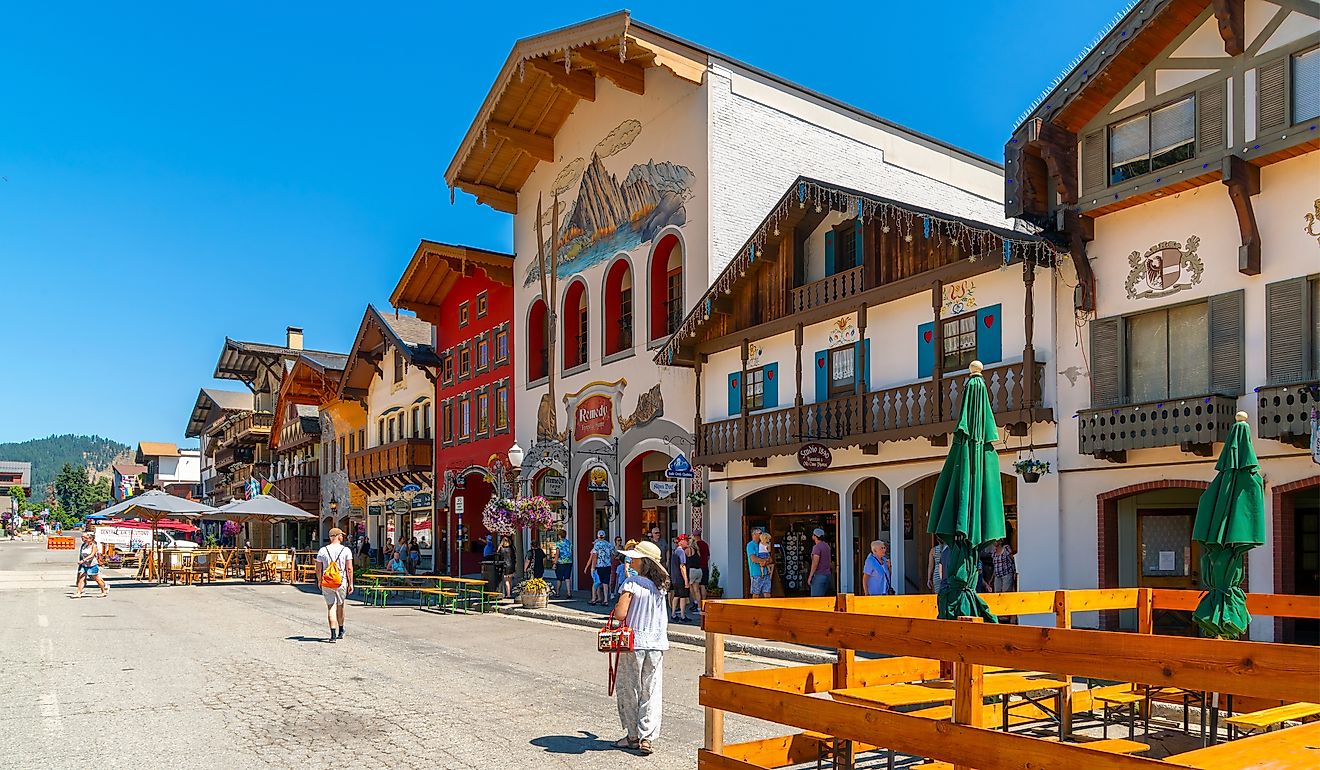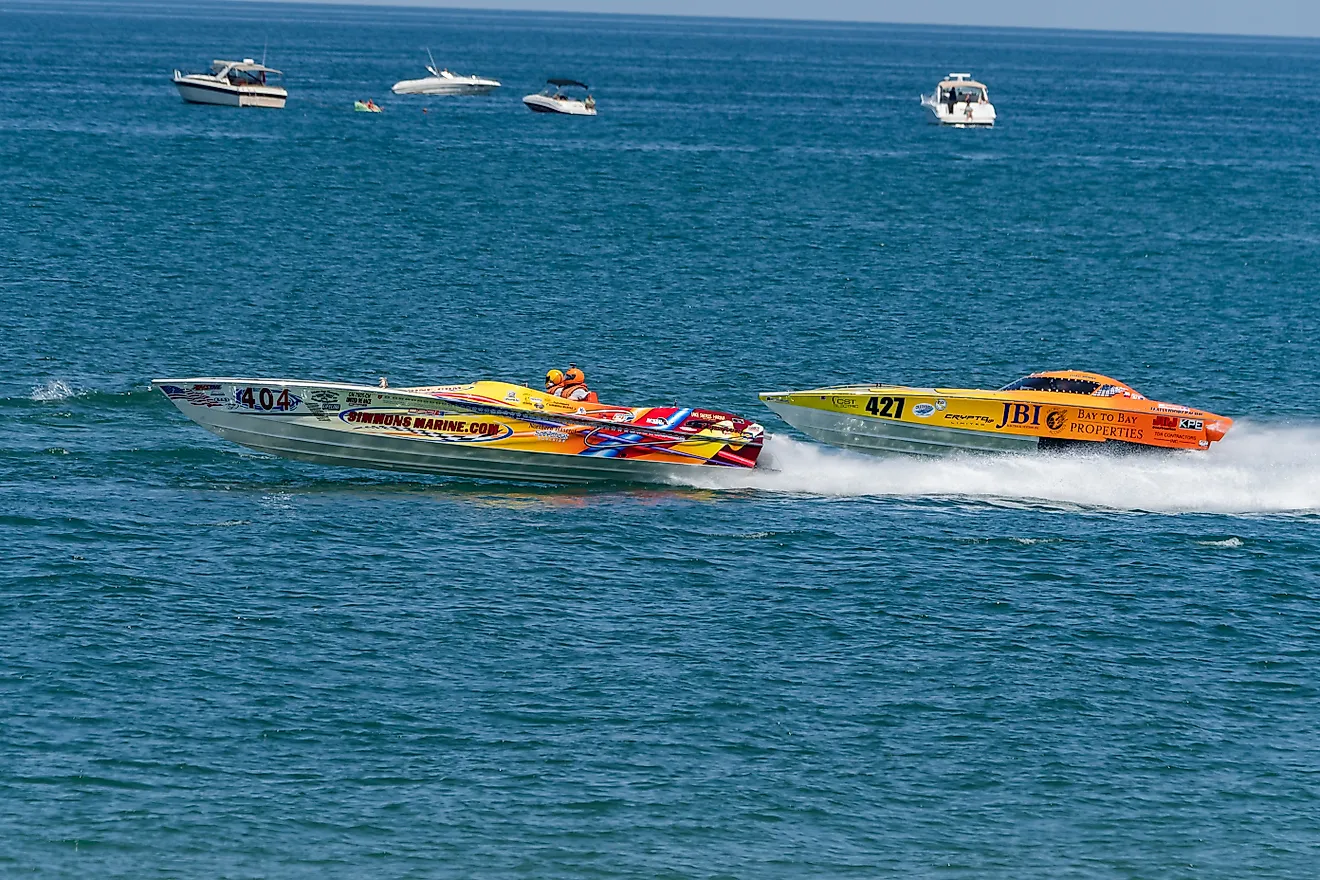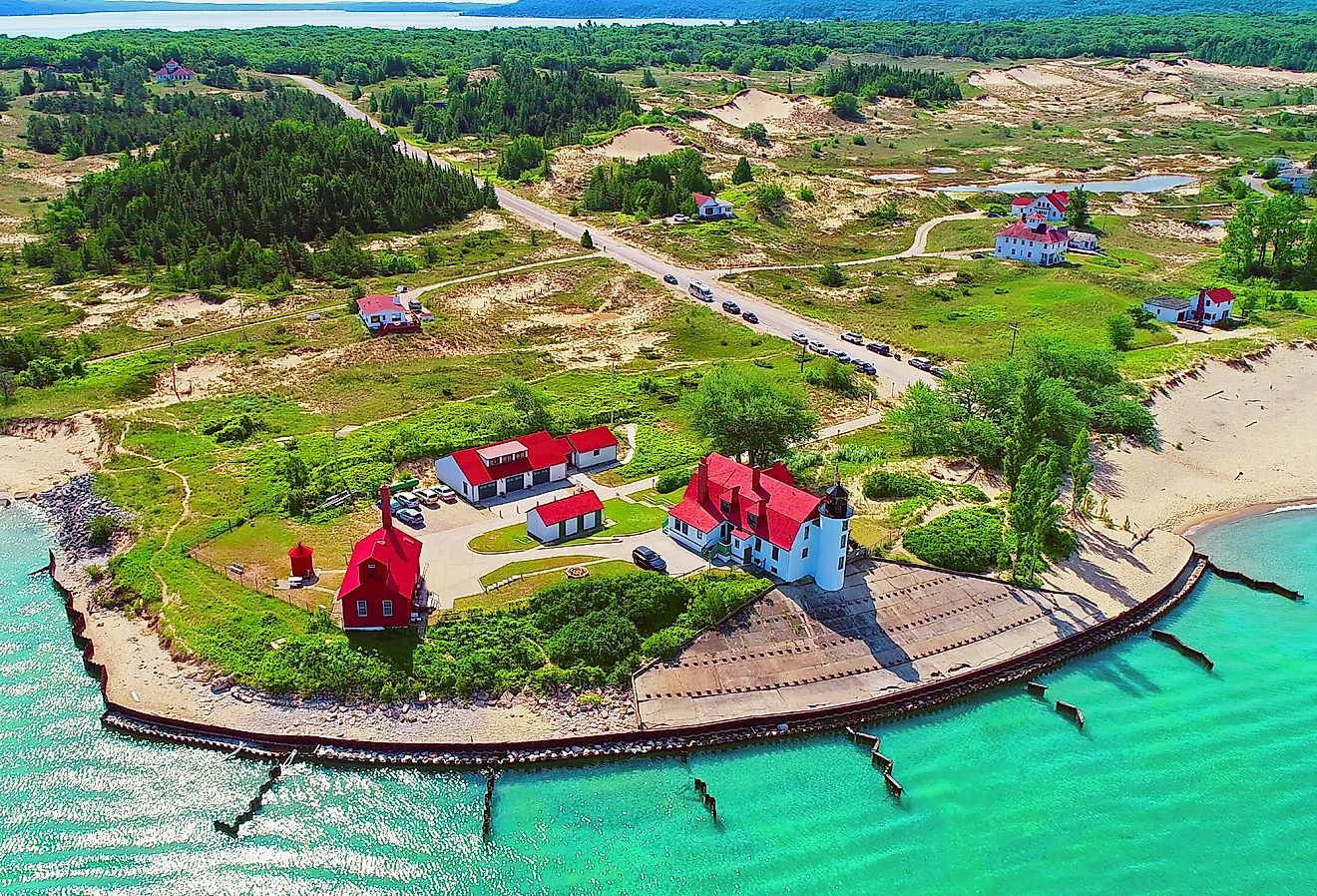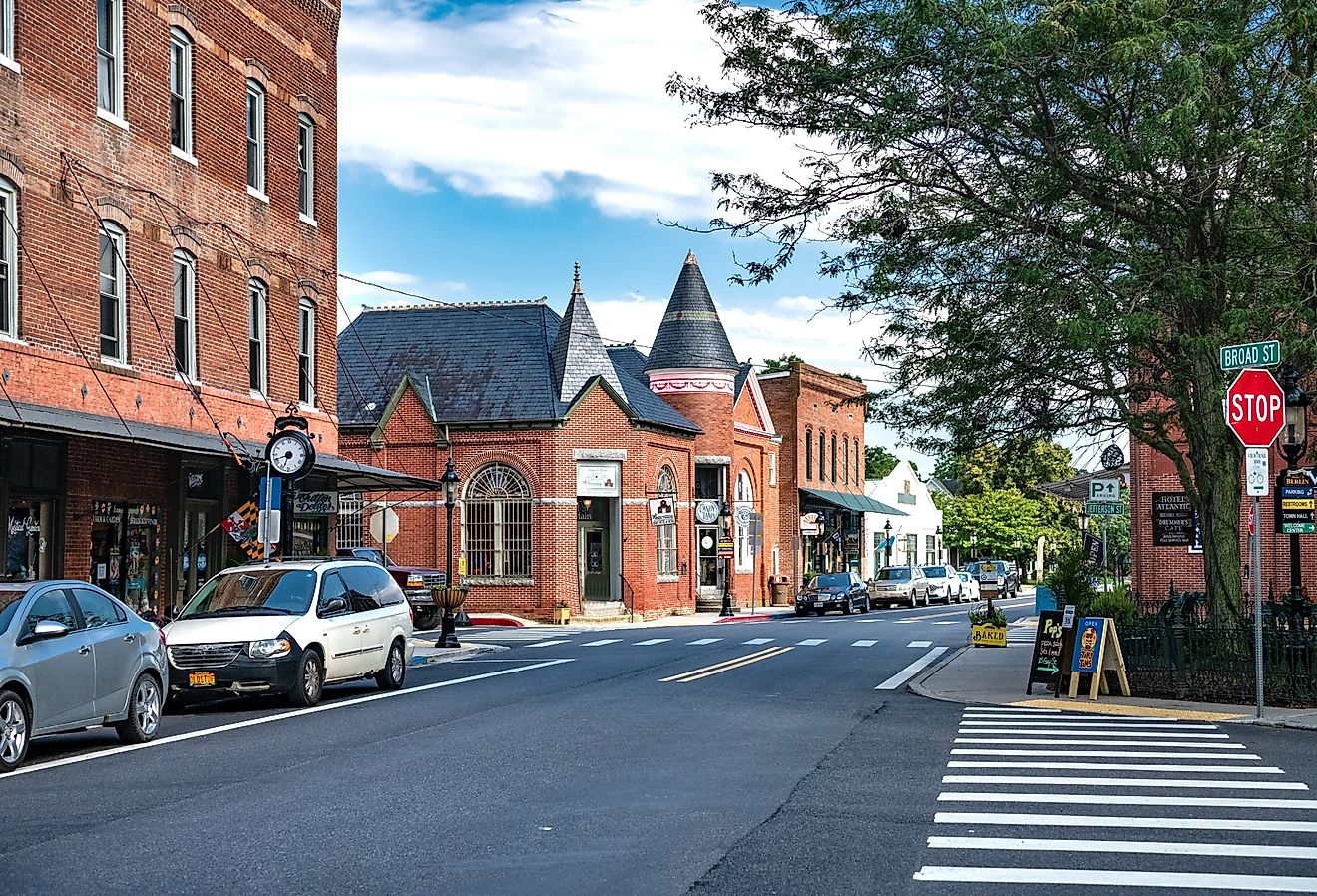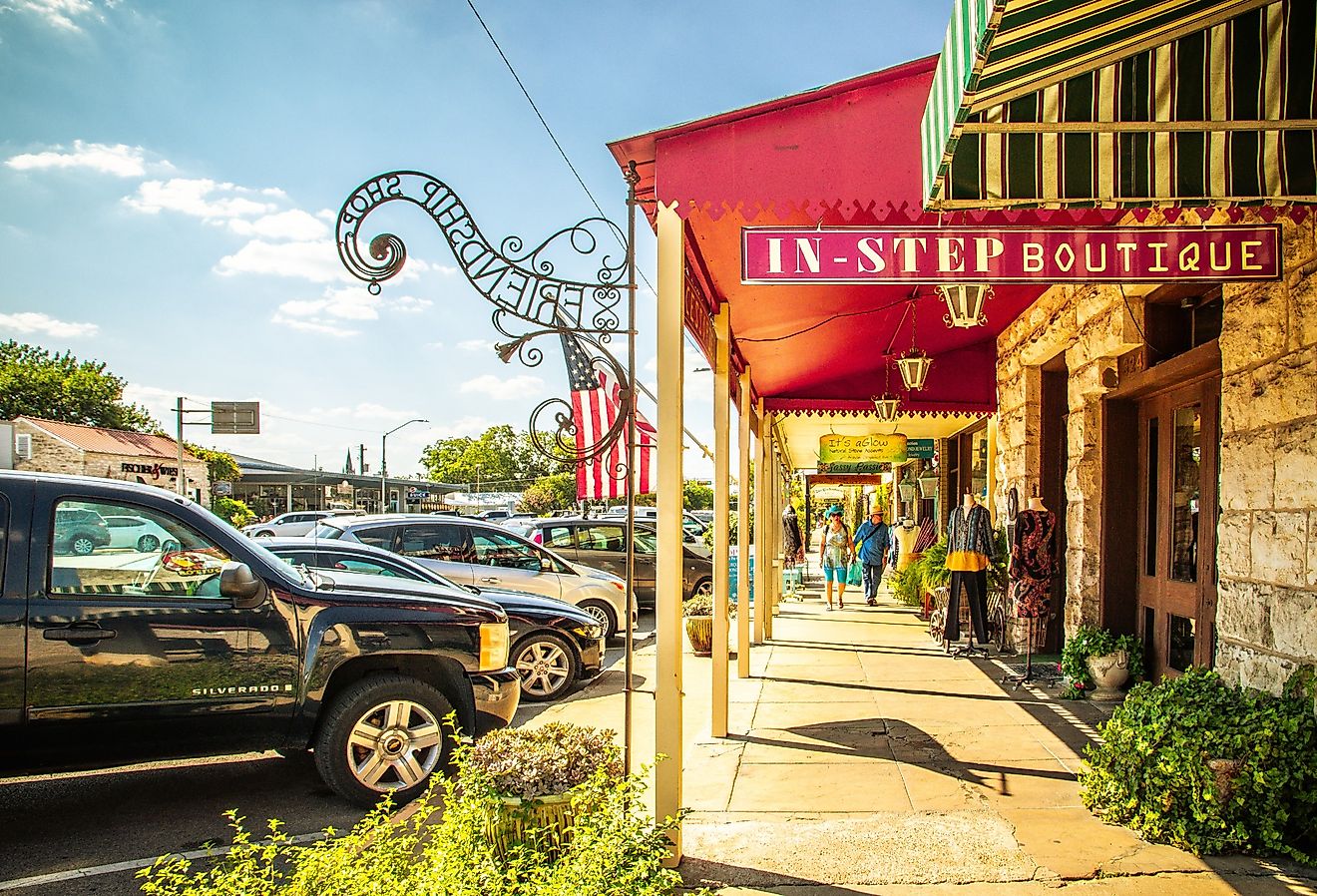
10 Most Charming Lake Towns In America
A lake setting gives towns an ultimate appeal and summer resort vibe, often in tandem with mountains, hiking trails, and an array of activities to partake on- and off-waters. These top eleven charming towns are uniquely crafted by the residents to bind history and culture, for the most coveted lakeside getaway in the United States.
Aurora, New York

The most-charming town of Aurora is set in close proximity to Ithaca, on the Cayuga Lake, renowned as one of the largest yet most pristine of the eleven glistening New York Finger Lakes. The small town with big character is set in close proximity to the stunning wine trail of the region, many more wineries along the adjacent Seneca Lake, and the Wine Company in nearby Union Springs. It is known for the many charming Finger Lakes lodgings offering best vacation-spent meeting gorgeous sunrises over the lake, culture, incredible food scene, and boundless water activities at the fingertips. There are also five beautifully-curated lakeside inns offering a luxurious escape.
The region is home to over 40 waterfalls to seek-out on venturous hikes through some of the most idyllic nature-scapes surrounding Aurora. More spectacular adventures and attractions in the “summer camp for adults” include the Watkins Glen State Park for hiking, the Seneca Lake for fishing, along with in-town breweries, and tons of farm-to-table restaurants in the adjacent Ithaca and Skaneateles.
Bayview, Idaho

The town platted in 1910 by a group of entrepreneurs, switched gears from logging, fishing, and limestone-mining to the “southern gateway” on Lake Pend Oreille. The International Railway connection from Spokane brought an influx of tourists to the town that stays true to its name with extensive views of Coeur d’Alene, Cabinet, and Bitterroot Mountain ranges across the bay.
Bayview is community like no other in the United States with a couple hundred float homes on the Lake Pend Oreille's south-western shore welcoming buyers and tourists, in-search of a charming lake-locale with bountiful outdoor adventures. The town comes steeped in war history of the Second World War that is conceptualized in detail at the Farragut State Park museum. It was the setting of a failed attempt in joined effort between Adolf Hitler and the Emperor Hirohito of Japan to invade and divide the United States.
The Farragut Naval Training Station was built on the shore of Lake Pend Oreille following the attack on Pearl Harbor. It trained 293,381 men from 1942 to 1946, while serving as defense mechanism against coastal invasion, with 20-acre parcel of the shore still used by the U.S. Navy for acoustic research detachment.
Charlevoix, Michigan

The former fishing village of Pine River in 1852 established on an Indian village site is now a charmingly-quaint lakeside town with nostalgic water views. The town was named after a French-descent Jesuit missionary explorer, Pierre-François-Xavier de Charlevoix. Its north-western Michigan locale in-between Lake Michigan and Lake Charlevoix is connected by the Pine River with the Round Lake nearby, for endless water fun and recreational activities.
The picturesque summer resort is complete with idyllic homes-set high on dramatic bluffs with terraces hanging over waters of Pine and Round Lake. Many vacation rentals offer boundless views, and are beloved by boating enthusiasts, while the town also comes surrounded by sugar plantations and cattle-stock raising farms.

There is also a fish hatchery and a cruise line to the Beaver Island, along with the notable landmarks of the U.S. Coast Guard station and the lakeside Fisherman's Island State Park. The small-town atmosphere is complete with a number of markets offering cultural vibe while stocking up on locally-grown foods, fresh white fish and lake trout from the fishermen, along with rustic and fancy wood-work from local craftsmen.
Bigfork, Montana

The lovely town brims with natural charm from its scenic locale within the Rockies and the bay. The Swan River flows into the Flathead Lake-set surrounded by the spectacular Swan Mountains. Bigfork's charming downtown brims with Western art and culture with vibrant streets aligned by galleries and performance venues, including one of the Northwest's finest repertory theaters, the Bigfork Summer Playhouse. There is the annual art festival in August with works by more than 100 artists and craftsmen, as well as Sunday evening summer concerts at the Everit Sliter Memorial Park.
The town boasts a185-mile shore-bounding the lake that is the largest freshwater system for hundreds of miles around. The rich agriculture of the region grown for sale since 1892 includes fruitful apple, cherry, plum, and pear trees. There is the iconic Swan River Nature Trail a few minutes from the center known scenic sparkling water-views along its winding path for hikes and bike rides. The popular Eagle Bend, 27-hole championship golf course perched on the north shore comes with vistas of the lake, the mountains, and the Glacier National Park.
Coeur d'Alene, Idaho

The town was founded in 1879 on the northern shore of the namesake lake that translates into the "heart of Alene." The former trading post for Fort Sherman (Former Fort Coeur d'Alene) saw the establishment of the railroad in 1886 after lead and silver sparked the town's development. The historic conflict between mine owners and unionized miners, including murder accusations and prosecutions against union leaders and the secretary-treasurer William D. "Big Bill" Haywood in 1907, ended in a spirited defense by the attorney, Clearance Darrow.
With lumber as the main economic driver of the town, one will find plenty of ruggedly-beautiful woodlands around for scenic hikes and charming picnics. The "Playground of the Pacific Northwest" is perpetually enriched through public and private investments, in-turn yielding a growing number of tourists. The 30-mile lake beach front features spectacular views to the forested mountains, while the downtown comes brimming with art. There is also the renowned Silverwood Theme Park and cruises along the river for a water-view of the charming town embraced in natural beauty.
Holland, Michigan

The town-set on the Lake Michigan's shore, with an inland lake Macatawa matches the pace of its namesake European country. One will find scenically-lined streets with canals, brewing culture, and stands selling wooden shoes. There are also many windmills such as the famous 18th-century Dutch windmill, De Zwaan (The Swan), and colorful fields during tulip season which fills the town's streets and markets with beautiful flowers. Mount Pisgah hovers over the Holland State Park with hikes of various levels. One can climb the 239 stairs to the peak for the iconic views of gleaming lakes and the charming Big Red Lighthouse.
The early lumber-driven was settled by the Netherlands’ minister Van Raalte in 1847. It grew rapidly when their families and other Dutch newcomers joined the labor force, including agriculture and poultry farming. Dutch immigrants continue fleeing to the region to "taste" America, but within cultural vibe of the old country.
Ithaca, New York

The town was founded in 1789 by the surveyor general of New York, Simeon DeWitt. It was established in 1817 on the southern edge of the Cayuga Lake, as the southern gateway to the Finger Lakes recreational area. The location at the New York State Canal System helps drive the town's economy through various manufacturing and production, as well as dairy farming and salt extraction. The nearby state park comes with the renowned Taughannock Falls, while the breathtaking gorges cracked by creeks are reminiscent of the ancient Greek island after which the town was named in 1795.
The former bustling agriculture and lumber center of the region gained prestige upon the establishment of the Cornell University in 1865, and Ithaca College, in 1892. The streets brim with a lively, bohemian vibe emanating from the educational institutions, with the youth spiking the population to nearly 60,000 during school season. The Ithaca Commons is an eclectic center-full of attractions, including vibrant art, various dining, and shopping opportunities. The famous Ithaca Farmer's market, the vitality, and natural vistas surrounding the town attract fleets of national and international tourists year-round.
Lake Geneva, Wisconsin
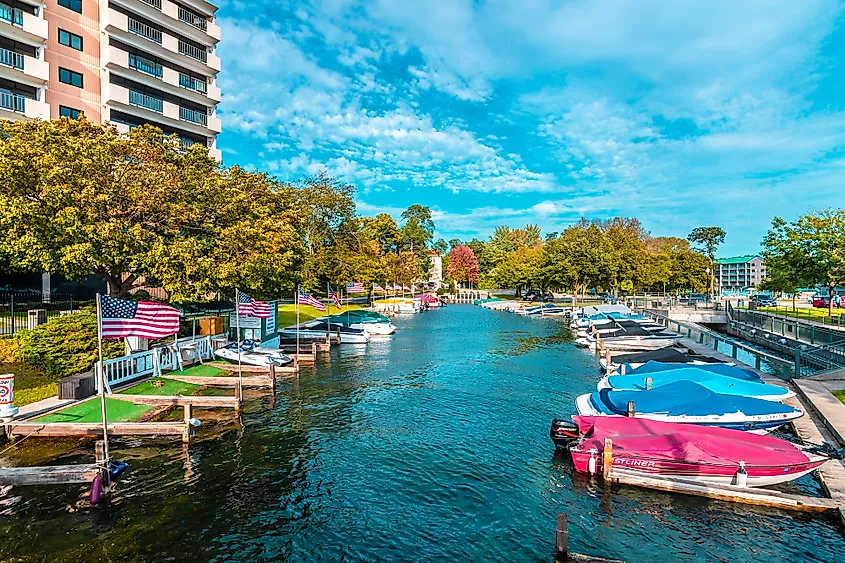
The charming town is set on the north-eastern shore of the 7.6 miles (12.2 km) long Lake Geneva in south-eastern Wisconsin. The partly spring-fed lake with maximum depth of 135 feet (41 meters) drains into the White River. The lake's area of 5,262 acres (2,129 hectares), with a 26-mile (42 km) shoreline comes surrounded by forested hills for wonderful hikes, along with endless water-side activities and recreation. The William's Bay on the lake's northwest shore hosts the Yerkes Observatory from the University of Chicago.
The Big Foot Beach State Park on the eastern edge of the lake, and the Fontana site on the western are the remnants of the Potawatomi Village from the1830s that was headed by Chief Big Foot. Lake Geneva was settled in 1836 as a town of gristmills and sawmills that would transform into one of the country's highest-demanded lake getaways. One will be in awe of the luxurious scenery, historic mansions, and the resort, where wealthy Chicago residents would summer. The “Newport of the West” also became a beloved permanent home to many who were affected by the Chicago's great fire of 1871.
Lake Placid, New York

The town was first attempted at settlement in 1800, with the poor crop cycle postponing the birth of the summer resort until 1850. Lake Placid is placed scenically on the self-promoting Mirror Lake, as well as the namesake lake of the town. There's the Adirondack Scenic Railroad for fall-time, atmospheric strolls surrounded by the vibrant foliage in the sun's last rays shining through the surrounding Adirondack Mountains. The town offers a unique vibe, set in the shadow of over 40 peaks including Whiteface Mountain, some reaching over 4,000 feet, and the tallest Mount Marcy, at 5,343 feet. The golden season covers the mountain-side maples, aspens, and birches in fiery shades, which gives the town an uncompetitive edge in the region.

In 1895, Melvin Dewey, the creator of the Decimal Classification system for libraries, and founder of the Lake Placid Club, started promoting winter sports in the area, along with his son, Godfrey. They successfully secured the bid to host the third ever Olympic Winter Games in Lake Placid. Although the timing during the Great Depression lead to financial losses, the town retained its winter sports image and installations, and once again hosted the Olympic Winter Games in 1980 as one of the few locales in the world that hosted it more than once.
Mackinac Island, Michigan

Mackinac is a charming 18th to 19th-centuries town on Lake Huron, set as an 8 miles (13 km) in circumference, island. Horses and buggies replace cars on the streets that are also a biker's galore, with well-prepped roadways, and bountiful nature around to explore via a breezy ride. The island-steeped in history comes with a marvellous Victorian-style Grand Hotel from 1887 for a rustically-charming stay on a getaway from civilization.
The locale was first scouted by the French explorers in 1600s around the ancient Indian burial ground, known as Michilimackinac, or the Great Turtle. The strategically-desirable island was taken over by the Brits in 1780 who erected a fort for protection and look-out. Still, the highly-contested grounds switched hands just three years later, when the United States took possession and established the John Jacob Astor American Fur Company. Mackinac Island belonged once again to the British in time for the war of 1812 and taken back by the US three years following.

Mackinac is known for dense forest-cover, with limestone cliffs enveloping the island to the East. The cliffs ascend from the waters for 339 feet (103 meters), with the must-visit natural wonder of the Skull Cave. There's also the world-famous Arch Rock, and a limestone tower, known as "Sugar Loaf". There is the beautiful Lilac Festival in-town each June. In July, the streets welcome winners of the 333-mile (536-km) yacht race up Lake Michigan that commences from Chicago.
Marquette, Michigan

The charming town of Marquette is set on the Lake Superior, known for sweeping water vistas, and miles of trails around. The picturesque area is bountiful in accessible waterfalls to scavenger-hunt for on a hike. The lake is North America's largest fresh body of water that stays cool even during the hot summer months for the most refreshing dips. It is most popular for boating, fishing, and sunbathing on the immense shoreline. The in-town is a galore of arts and culture, with many local restaurants, theaters, galleries, eclectic shops, and unique museums within a quaint city center.
There's The Landmark Inn tucked in the downtown that overlooks Lake Superior for the most scenic stay. It features an old-world European splendor that has been central to the social hub of Marquette since 1930, with the likes of Amelia Earhart, Duke Ellington, Louis Armstrong, and The Rolling Stones greatly enjoying its offerings. The newly-renovated set-up contains modern amenities with opulent comfort, seen in the stately rooms and suites featuring the original grandeur behind the old architectural facade. One will have new furnishings, deep-soaking claw-footed tubs, and panoramic views of the ultimate lake destination to spend days in the outdoors and come back to a homey and memorable place.
These popular lake locales can easily compete with the energy of the large business centers in the United States, as highly thought-after destinations by megalopolis dwellers. The secluded atmosphere of small-town living complete with invested time and effort of its citizens to open-up their home-by-the-lake, make for ideal getaways that will suit any taste.
